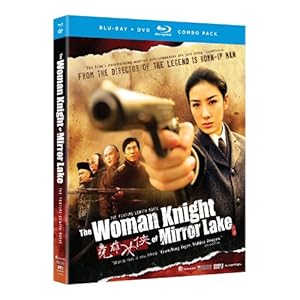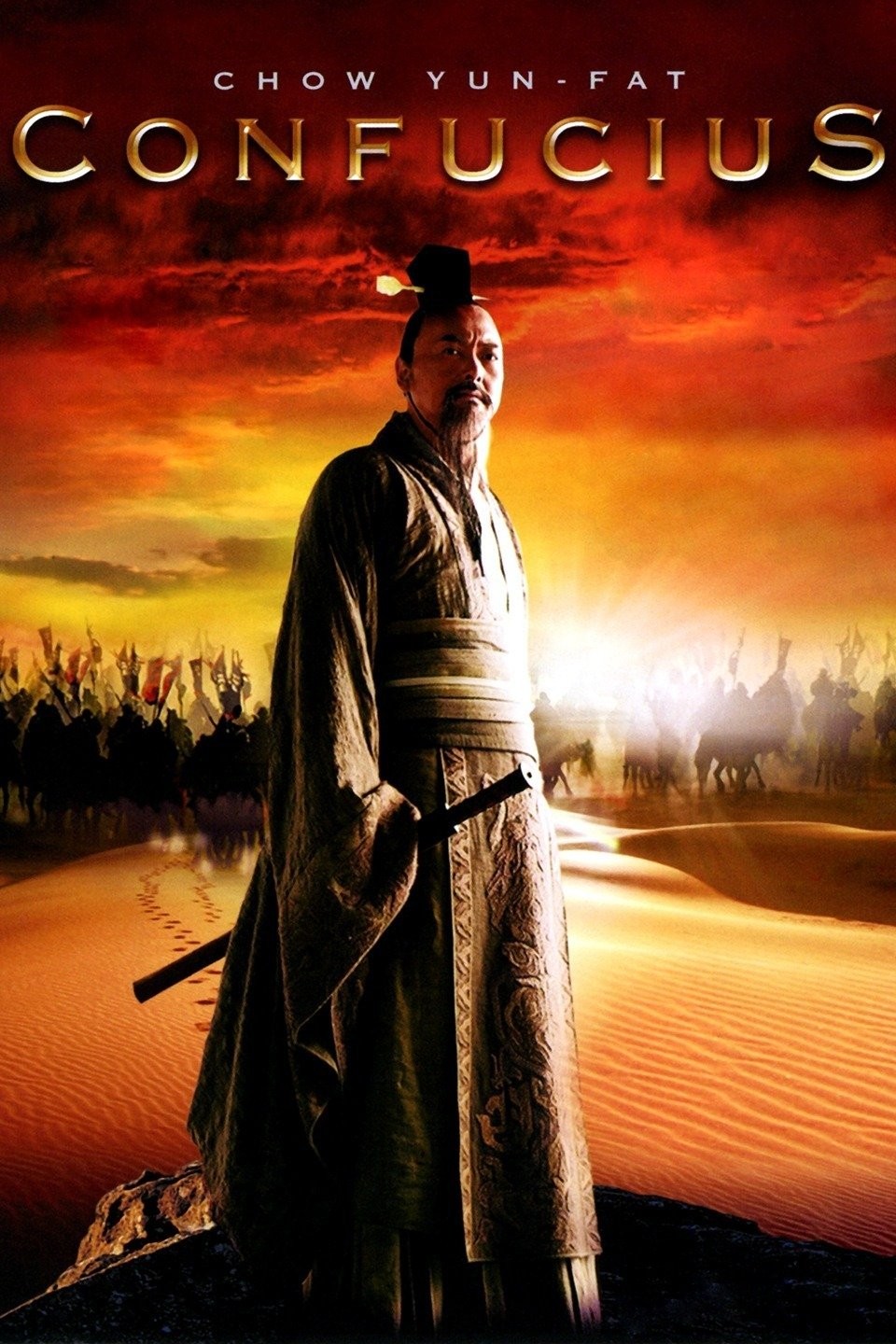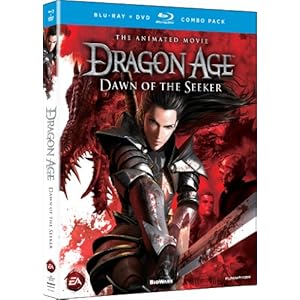
Originally posted on 11/9/12
Mixing wuxia-style hijinks, superhero heroics, and screwball domestic comedy comes INCREDIBLY EVER AFTER, aka "Mr. and Mrs. Incredible" (2011), one of the more warm and sweet-tempered Chinese action flicks I've seen.
Unlike modern-day superhero adventures, the story takes place in ancient China after Mr. and Mrs. Incredible have already retired to a quiet life of marital bliss in a remote mountain village. Flint (Louis Koo, TRIANGLE, PROTEGE'), the former "Gazer Warrior", is now head of the town guard--a job that requires practically zero effort--while his wife Rouge, the one-time "Aroma Woman", divides her time between domestic duties and trying to get pregnant despite the fact that civilian life has severely slowed her metabolism.
Enter the Bai Xiao Clan, whose job it is to sort out and rank the many different sects of Chinese martial arts and who have decided to hold a competition in the village. While hoping the excitement of the event will stimulate Rouge's fertility, the super duo also begin to notice strange things about the young man in charge, Grandmaster Blanc (Wang Bo-Chieh), whose hidden agenda will force Flint and Rouge back into action in a life and death battle against evil.
Those expecting non-stop thrills and mind-bending excitement will very likely be disappointed in INCREDIBLY EVER AFTER, which for much of its running time is a gentle, low-key domestic comedy that's as laidback as its rural setting. Much of the humor comes from Flint and Rouge trying to agitate themselves into a more fertile state by provoking one another to anger and jealousy, with their methods becoming more and more desperate and absurd. (Their anger, however, never lasts long.) We also get to see the lengths they must go to in order to hide their super powers from their neighbors--even something as simple as a sneeze can have drastic results.
The martial arts ranking competition provides unexpected slapstick humor as some of the different fighting styles prove laughably lame. Flashbacks give us a peek at the former exploits of Gazer Warrior (his capture of the Pest Four during a bank holdup is a highlight) and Aroma Woman, who uses her olfactory powers to foil a domestic abuser. Their meeting and subsequent love affair are delightfully depicted with plenty of lighthearted charm, as is their devious use of super powers in their everyday lives (especially to help persuade a real estate agent to lower the price of their seaside dream home).
Standard superhero action comes to the fore late in the film when Grandmaster Blanc finally makes his move and Mr. and Mrs. Incredible must don their legendary heroic guises once again. Much of the action here is dominated by cartoonish CGI and has an absurd quality that's somewhat reminiscent of the Shaw Brothers' earlier HOLY FLAME OF THE MARTIAL WORLD or THE BATTLE WIZARD although not nearly as mindblowingly outlandish. As in the rest of the film, the violence is mild and nothing is taken overly seriously, although there's a touching depth to the feelings expressed by our heroes for one another during their most desperate moments.
Vincent Kok (FORBIDDEN CITY COP) directs with a sure hand and deftly handles both the action and comedy elements. Colorful, eye-pleasing visuals are enhanced by some nice location photography and sets. The main draw here, however, is the pairing of Louis Koo and Sandra Ng Kwan Yue as one of the most appealing, endearing screen couples I've seen in a long time. I love how, no matter what they do to agitate and provoke one another (all in their effort to conceive a child together), they simply can't stay mad at each other.
The Blu-Ray/DVD combo from Funimation is in 16x9 widescreen with Dolby 5.1 Cantonese surround sound and English subtitles. Extras consist of four different trailers (containing new material) and previews of other Funimation titles. The closing credits crawl features bloopers from the film.
I've seen comments pointing out the lack of action (except in the final fifteen minutes of so) and the similarities between this and Pixar's THE INCREDIBLES. But as far as I'm concerned, the almost effortlessly charming INCREDIBLY EVER AFTER is simply too much of a sheer delight to complain about.










































